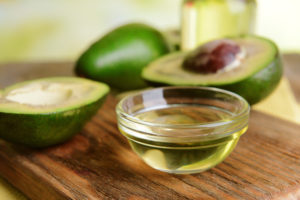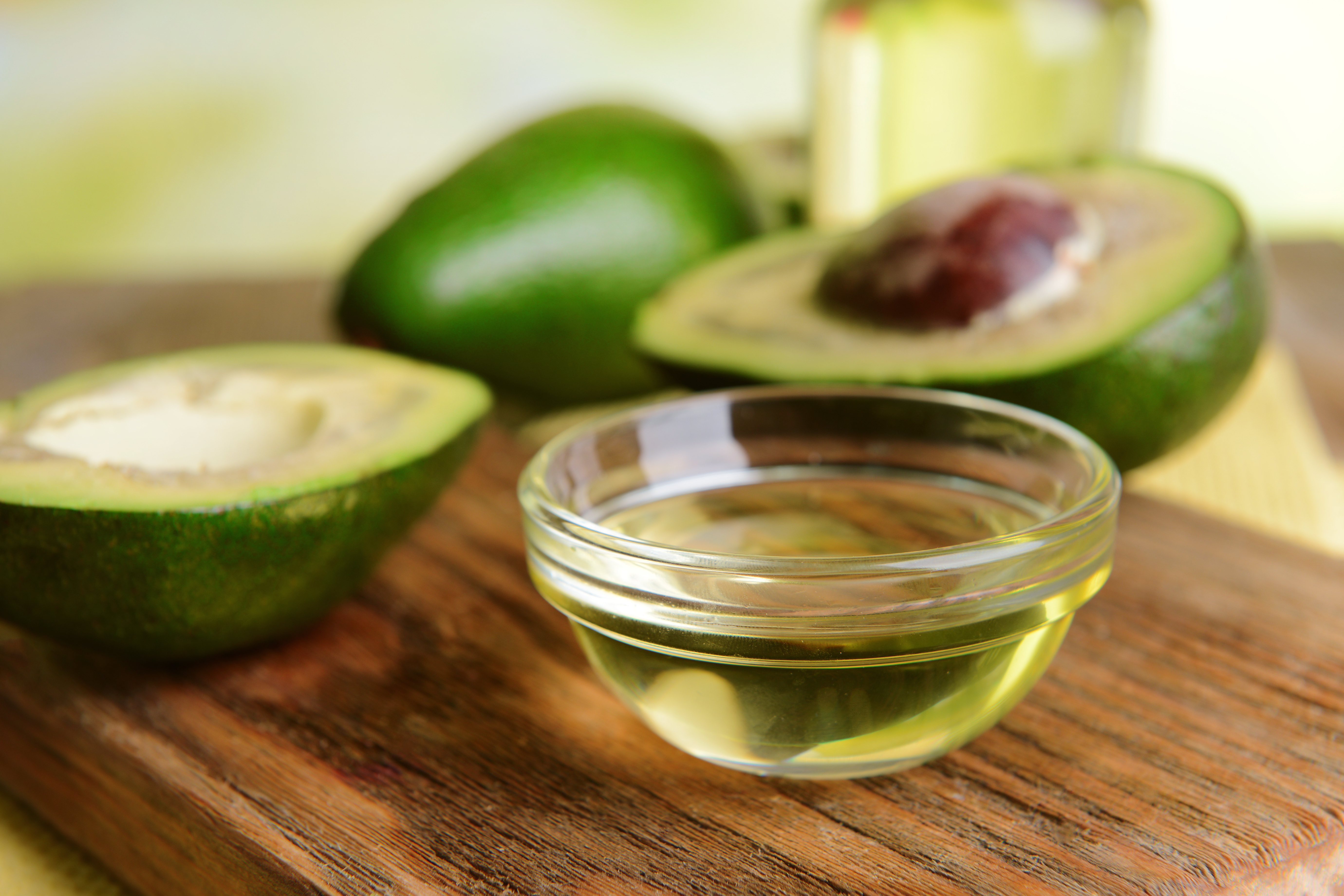
Everything we know about Avocado Seed Oil
When looking for alternatives to the popular, yet unhealthy vegetable and canola oils, avocado seed oil has probably crossed your radar. But what is it about avocado seed oil that is making it more and more popular among home users, and how can it benefit you?
All this and more will be discussed in this breakdown of everything we know about avocado seed oil. Let’s get started!
Where does it come from?
Avocado seed oil has been a part of Mexican traditional medicine for years and is used to treat anything from diarrhea to asthma, to skin problems and for greasing hair.
First things first is that avocado seed oil comes from avocados. Dead giveaway, right? But don’t think you can make this oil in the same way you do your grandma’s world-famous guacamole.
You can make avocado seed oil at home by removing the skin and pulp away from the seed/pit and allowing it to dry. Then, using a mallet, crush the pit into smaller pieces and add them to the cold-press device of your choice to extract your oil.
Let the oil sit for a few days and scoop off any contaminants that rise to the top. You may also strain it to remove additional impurities. You can also heat the oil at 100°C to remove bacteria and excess oils, but we will take a look at that later.
On an industrial level, the seeds are chopped, then heated too 100-110°C in large containers while being stirred simultaneously. Once roasted, the seeds are pressed until they reach the desired viscosity and density, and are further refined or purified before they get to shelves.
The cold-press method takes longer, but it is the healthiest extraction method when it comes to any seed oil. If you don’t see the words cold-pressed on the bottle or container, chances are the latter method was used, and it may even contain some solvents and chemicals used to manufacture and preserve the oil.
Is it the same thing as avocado oil?
The short answer to this question is no. While they come from the same fruit, they are made in different ways and have different properties.
Unlike avocado seed oil which is made from the seed/pit of the avocado fruit, what we call “avocado oil” is made from the pulp or the fleshy green part that we use to make guac. Instead of being cold-pressed like the seed, the flesh/skin can be made into oil in three different ways:
- It can be sliced, pureed then cooked on a stovetop until the oils start to rise to the top, at which point it is strained through cheesecloth.
- The skin can be pressed using an orange press to extract the oil, which is then strained.
- The pump can be pureed and placed on a baking tray and put into an oven at 50°C for four or five hours until it is dried, then squeeze in some cheesecloth to extract the oil
These are at-home methods for making avocado oil. On an industrial scale, extraction methods vary and they typically contain more than just avocado oil.
Avocado oil is more widely used than avocado seed oil, in fact, not many people are aware that the seed is very useful and just end up throwing it away. But since we have distinguished between the two, it is time to delve deeper into avocado seed oil and what we actually know about it.
What is it used for?
Avocado seed oil is used for so many purposes, that you might even be surprised at its versatility.
Aside from acting as a carrier oil for other flavors and increasing the absorption rate of vitamins and nutrient when eaten, some common uses of avocado seed oil include:
Treating symptoms of arthritis, gout, and rheumatism
Avocado seed oil has anti-inflammatory properties. This is due to high levels of catechins and procyanidins which can reduce joint pain, aches, and soreness, along with swelling and loss of joint function. To reap this benefit, the oil is massaged into the skin by itself or added to other oils or creams.
Hair and skincare
Originally extracted for cosmetic purposes, avocado seed oil contains a number of antioxidants which help to rebuild collagen which in turn helps to improve the texture and appearance of the skin. Avocado seed oil is also a great natural alternative to sunscreen, especially if you are allergic to some of the ingredients found in store-bought sunscreen.
It can also be used to speed up the rate at which wounds heal and to treat stretch marks. If you suffer from psoriasis or eczema then you might want to check it out.
Shampoos containing avocado seed oil, or the raw oil itself is useful for thickening but also softening the hair, along with preventing graying and breakage. It also improves scalp health and can combat dry scalp or dandruff.
Heart health
The antioxidants within avocado seed oil promote good heart health by lowering cholesterol and regulating blood pressure thereby preventing cardiovascular disease and stroke
Cancer prevention
The phenolic compounds, flavanol, and polyphenols present in avocado seed oil play a very important role in preventing cancer and tumor growth. They may also help to relieve some of the symptoms experienced by cancer patients.
Nutritional facts
Avocado seed oil is known to contain minerals such as calcium, iron, magnesium, phosphorus, potassium, sodium and zinc. Fatty acids, starch, and dietary fiber are also present.
Its antinational components include oxalate, phytate, flavonoids, tannins, saponins, and cyanogenic glycoside.
Type of Fat
Avocado seed oil is similar to olive oil, in that they both share a monounsaturated fat profile. This is “good” fat.
| Avocado Oil Nutrition Facts | |
| Serving Size 1 tablespoon | |
| Per Serving | % Daily Value* |
| Calories 124 | |
| Calories from Fat 124 | |
| Total Fat 14g | 21% |
| Saturated Fat 1.6g | 1% |
| Polyunsaturated Fat 2g | |
| Monounsaturated Fat 10g | |
| Cholesterol 0mg | 0% |
| Sodium 1mg | 0% |
| Potassium 0mg | 0% |
| Carbohydrates 0g | 0% |
| Dietary Fiber 0g | 0% |
| Sugars 0g | |
| Protein 0g | |
| Vitamin A 0% · Vitamin C 0% | |
| Calcium 0% · Iron 0% | |
| *Based on a 2,000 calorie diet | |
Taste and smell
The vibrant orange-colored avocado oil has a strong, fatty odor.
Its taste has been described as a lingering avocado-like, but almost grassy-butter/mushroom flavor.
Smoke point
Both refined and unrefined avocado seed oil has a high smoke point of 249°C – 271°C due to its low acidity. This makes it suitable for cooking.
Pros
There are many advantages to using avocado seed oil over many other popular types of oils. Some of these benefits include:
- It is full of antioxidants- 70% of the antioxidants found in avocados are located within the pit/seed. Its antioxidant content is also higher than most fruits.
- High smoke point- Unlike other edible oils which have a low smoke point, the smoke point for avocado seed oil is much higher which allows it to actually be used in cooking, rather than just being a topper for some foods.
- It is promising for the treatment of tumors – Numerous studies have been conducted on rats and mice as the seeds tend to produce antimicrobial and antitumor effects.
- High fiber content- Because avocado seeds, and by default avocado seed oil, has such a high fiber content, it helps to regulate and even lower cholesterol levels. This is great for diabetics or if you have a heart condition.
Cons
We can’t look at the benefits of using avocado seed oil without looking at the drawbacks. Here are a few:
- Allergic reaction- if you have sensitive skin then you may suffer allergic reactions when avocado seed oil is used topically.
- Toxic in high does- While studies were being conducted on rats and mice, it was discovered that high doses can be toxic. The avocado seed actually contains a cyanide called amygdalin that can cause stomach aches if eaten in large quantities.
- Limited research- Despite being a part of traditional Mexican medicine for years, there still has not been enough research conducted so you can’t really be a 100% sure that this is the miracle oil that people have been talking about.
What’s the best way to use it
Since it has a high smoke point, avocado seed oil is perfect for frying, sautéing, searing, stir-frying, baking, roasting and baking.
However, since avocado seed oil hasn’t been given the good-to-go signal, it is probably best that you use it in small quantities, as a topper and not necessarily for deep frying.
Alternatives
A great alternative to avocado seed oil is to grate the seed itself and add it to another oil, such as olive oil to reap its benefits. You can also add it to smoothies and curries for a little oomph.
Things to note
- It is important to note that while the flesh and even the skin of the avocado have been given the green light for consumption, some scientists will argue that there has not been enough research to give the avocado seed the go-ahead for the public. With that being said, the research has been very promising so far and the benefits are irrefutable.
- If you are allergic to latex, you have an increased chance of being allergic to avocado seed oil. Doing a patch test before using it topically is advised, as you may risk breaking out into hives and rashes, skin itching and reddening and even burning.
- Women who are nursing or are pregnant should probably opt out of using avocado seed oil.
Conclusion- Healthy or Unhealthy?
Sure, avocado seed oil has its benefits, but don’t just go adding it to every single thing you can get your hands on. Maybe once in a while and in small amounts until everything is conclusive.
